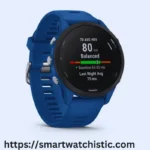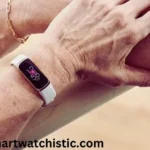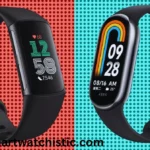Which One Is Right For You?
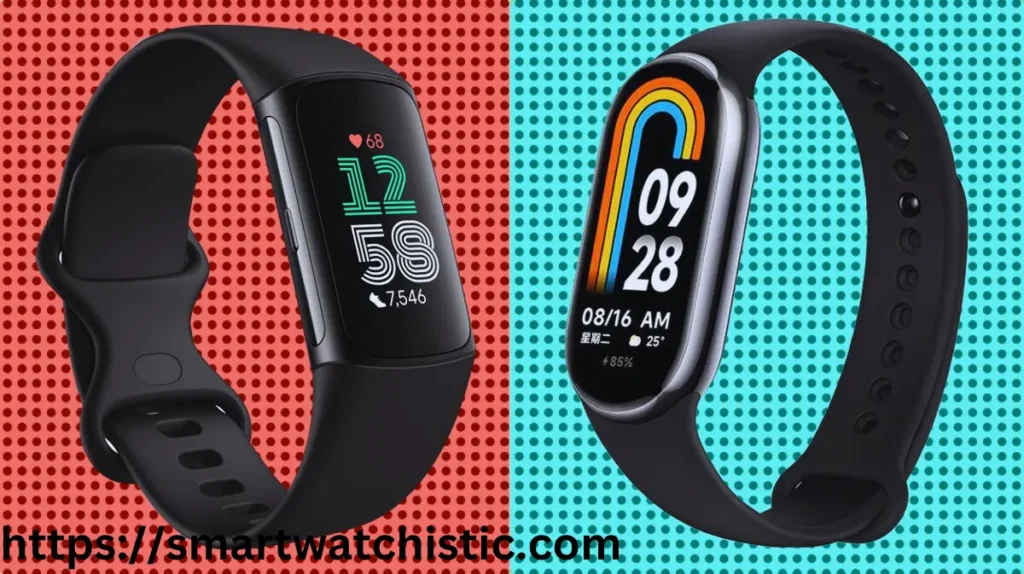
Searching for a new fitness tracker to keep tabs on your daily activities, sleep patterns, or overall health? Xiaomi Smart Band 8 Pro Vs Fitbit Charge 6 are your best options.
These choices offer excellent value for money, with durable features and long battery life without going over budget. For those who are new to fitness tracking, both are great options, but there are some notable distinctions to take into account.
To help you select the ideal champion for your wrist, let’s examine each of their salient characteristics!
Xiaomi Smart Band 8 Pro vs Fitbit Charge 6 Spec
| Feature | Xiaomi Smart Band 8 Pro | Fitbit Charge 6 |
| Show off | 1.74-inch AMOLED panel | 1.04-inch AMOLED |
| Navigation | Touchscreen Technology | Actual or physical button |
| Life of Battery | Normal use is up to 14 days; average use is 4–7 days. | 7 days (constantly off display), 3–4 days (constantly on show) |
| Time Spent Charging | About 1 hour | About 2 hour |
| Type of battery | Polymer made of lithium ions | Polymer of lithium |
| GPS | Yes | Yes |
| Heart-Rate Tracking | Yes | Yes |
| ECG Sensor | No | Yes |
| Stress Sensor EDA | No | Yes |
| Sleep Monitoring | Yes | Yes |
| Features of Women’s Health | Yes | Yes |
| Blood Oxygen Monitoring | Yes | Yes |
| Exercise Modes | More than 150 | More than 40 |
| Water Resistance | 5 ATM | 5 ATM |
| Astute Features | restricted (notifications) | Control YouTube Music, Google Wallet, and Maps |
| Customization | Many different additional bands | fewer alternatives for bands |
| Operating System | Above iOS 12.0 or Android 8.0 | Android 9.0 or later and iOS 15 |
| Suitable Apps | Mi Fitness app | Fitbit app |
Design and Display
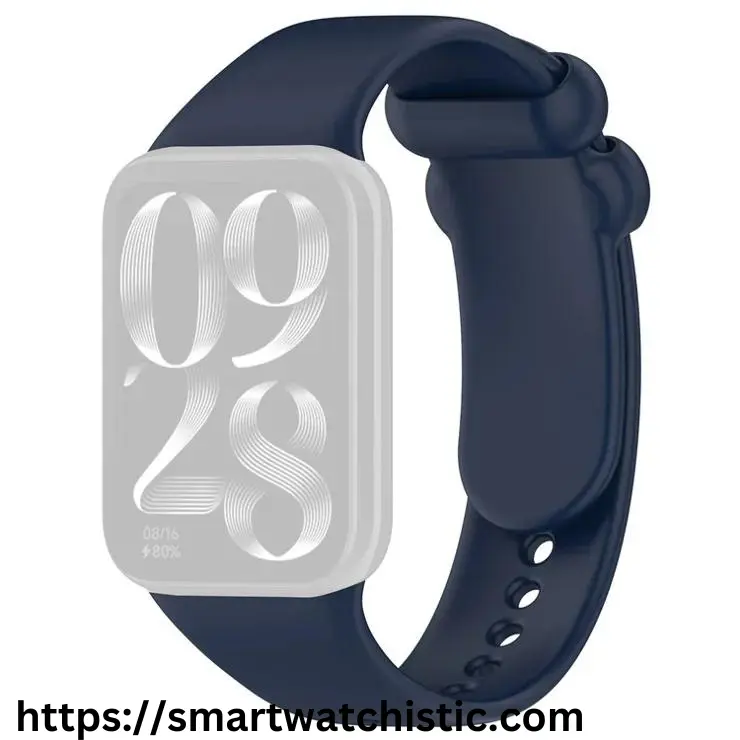
Xiaomi Smart Band 8 Pro:
In terms of design, the Band 8 Pro finds a middle ground between a conventional fitness tracker and a smartwatch. The large 1.74-inch AMOLED display, which offers remarkable clarity even in direct sunlight, is its most notable feature.
The Band 8 Pro is nonetheless stylish and functional despite having a larger screen; its dimensions are 46 x 33.35 x 9.99 mm (H x W). It fits all genders and wrist sizes thanks to its sizing. With a weight of only 22.5g without the strap and 37g with it, it’s comfy and light, making it perfect for both sleep tracking and vigorous exercise.
Even while the Band 8 Pro doesn’t have the most upscale appearance out of the box, there are plenty of modification and improvement options available. Xiaomi has a large selection of extra bands, such as those made of leather or metal, that are perfect for dressing it up for formal events. Its adaptability distinguishes it from the Charge 6, giving consumers the chance to customize the gadget to suit their own tastes in fashion.
Fitbit Charge 6:
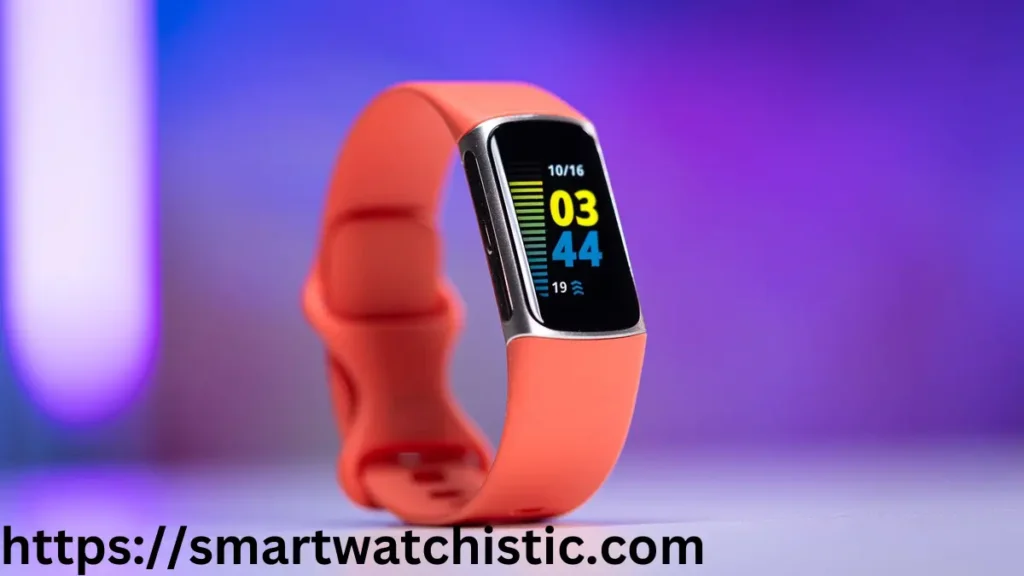
In comparison to the Band 8 Pro, the Charge 6 doesn’t offer a particularly improved build quality or design, despite its higher price point. Its customizing choices are also more restricted in contrast.
It’s important to keep in mind that while some users could prefer Xiaomi’s 1.04-inch AMOLED display over its larger screen, the smaller size might not be ideal for reading notifications or monitoring metrics on the wrist. This feature can be a disadvantage for people looking for a more thorough display experience.
The reduced dimensions of the Charge 6, which measure 36 x 23 x 11 mm, are ideal for people who have smaller wrists or who would rather have a more portable device. Comparing it to the Band 8 Pro, its tiny design might limit how versatile it is as a unisex alternative.
The Charge 6’s physical button is one of its best features; it makes navigation easier than with the Band 8 Pro’s touchscreen-only interface. This well-known design element adheres to the conventional form of a fitness tracker, which is valued by many users for its use and simplicity.
Health & Fitness Tracking Features
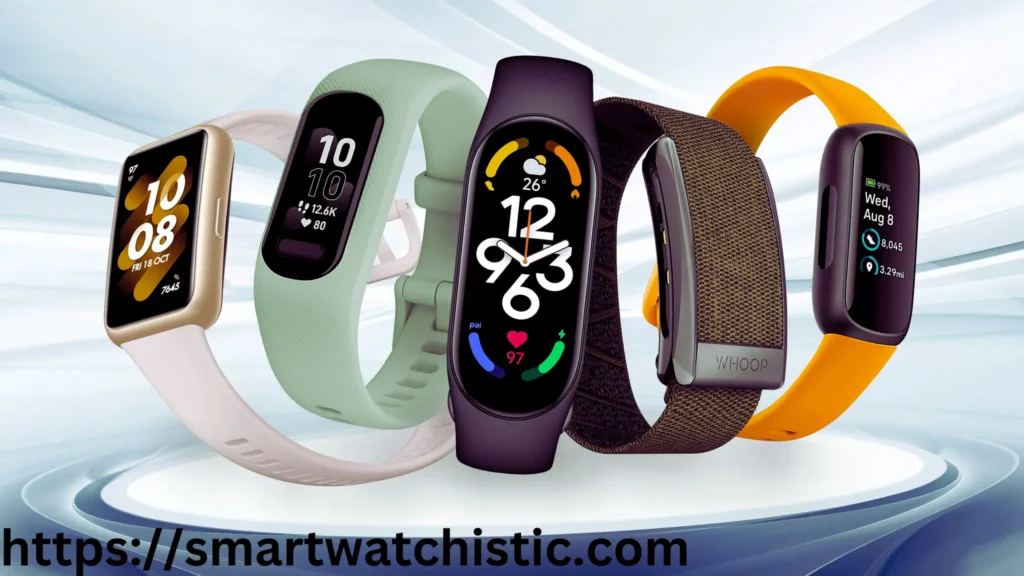
Xiaomi Smart Band 8 Pro:
While the Band 8 Pro has an amazing design, its tracking capabilities and access to a wider health ecosystem are inferior to those of the Charge 6.
According the paper, the Band 8 Pro appears to have all the features one might want, including blood oxygen saturation measurements, GPS tracking, compatibility with more than 150 tracking modes, advanced training analysis with predictions like VO2 Max, all-day stress monitoring, sleep insights, and women’s health features. The problem, though, is that many of these traits might not provide accurate enough data to be very helpful.
The fact that a few of the Band 8 Pro’s selling features might not be as dependable as those of premium alternatives from brands like Apple, Fitbit, and Garmin taints the experience considerably. However, because of the abundance of functions it gives for the price, it’s a great place to start for people looking for casual insights into their fitness and health.
Fitbit Charge 6:
Though it might not be as good as Xiaomi’s tracker for the same price, the Charge 6 offers almost the same functions as well as some unique insights that Fitbit Premium users can only access.
A notable feature of the Charge 6 is its outstanding sleep monitoring abilities, which rank among the finest in the business and are only surpassed by Oura in terms of precision and all-encompassing insights. The Charge 6 has a serious design problem in this area, though, even with its strength.
Like its predecessor, the Charge 6 has a well-known problem with GPS and heart rate tracking. Despite continuous investigations into Charge 5 bricking difficulties, Google has not publicly acknowledged the gadget. However, our own testing as well as observations from other reviewers and users have pointed to an unusual fault with the smartphone’s construction.
Essentially, the GPS is unable to lock on when worn in the conventional way. On the other hand, the optical heart rate monitoring is rendered useless if worn too loosely for the GPS to work effectively, posing a difficult compromise for consumers.
Smart features
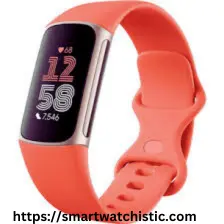
Xiaomi Smart Band 8 Pro:
The worldwide version of the Band 8 Pro’s smart capabilities are lessened in comparison to its Chinese counterpart due to the sad lack of support for contactless payments.
Although it performs fundamental duties like notifications well, its functionality is limited by the lack of compatibility for third-party apps. As such, your phone’s music support functions are limited to controlling playback, and you are unable to maintain connectivity if your phone is not close by.
Fitbit Charge 6:
The Charge 6 outperforms its competitors in terms of smart experience thanks to Google’s assistance.
Although it can’t compete with a full-featured wristwatch, it can be enhanced beyond fitness tracking with basic apps like YouTube Music for streaming, Google Wallet for contactless payments, and Google Maps for turn-by-turn instructions.
Like Xiaomi’s product, the Charge 6 isn’t available in a standalone version that can function separately from your phone. It does, however, have the ability to reflect notifications to your wrist from both iOS and Android devices.
The Charge 6’s smart support is limited because it does not have safety features or Bluetooth call capability, even with this capabilities. But compared to Xiaomi’s tracker, its user interface is noticeably less glitchy, which makes for a more seamless experience all around.
Xiaomi Band 8 Pro vs Charge 6 Battery Life
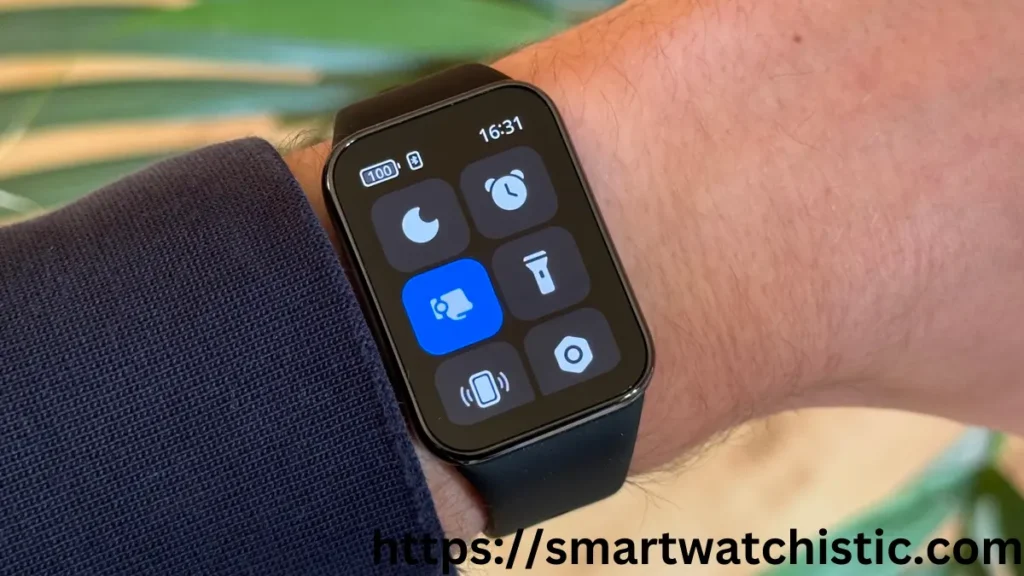
Xiaomi Smart Band 8 Pro:
With typical use, Xiaomi promises that the Band 8 Pro can last up to 14 days—a longer period than the Band 7 Pro’s 12 days. However, this estimate decreases to about six days if you choose to use the always-on display option.
Even though Xiaomi’s estimates are generally correct and supported by our testing of the Band 7 Pro, you might need to disable some functionalities in order to achieve these durations. In all likelihood, most users will get between four and seven days out of their batteries.
Even yet, given the variety of functions available on its rather large display, the Band 8 Pro provides impressive multi-day battery life.
Fitbit Charge 6:
With the Charge 6, Fitbit has not significantly increased battery life. One week is about as long as consumers can anticipate to use it without the always-on display. But turning on this feature shortens the battery life to about three to four days.
It takes around two hours for the Charge 6 to fully charge from zero to 100%, in contrast to Fitbit’s smartwatches, which include a rapid charge capability.
Although the battery life of the Charge 6 is commendable, it is not as good as that of the Band 8 Pro.
Price and Availability
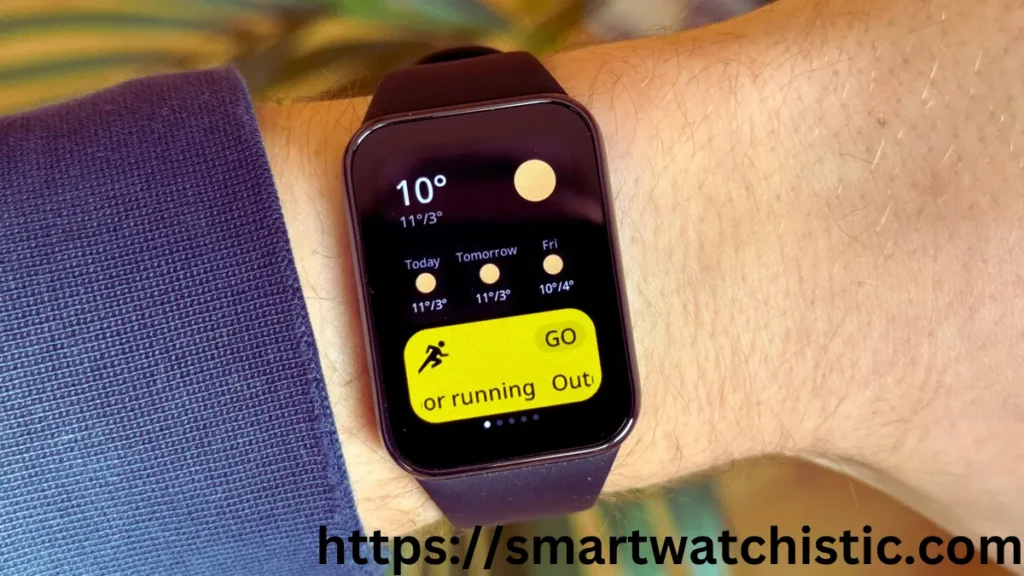
When selecting a fitness tracker, it’s critical to take competition, availability, and cost into account. At $160, the Fitbit Charge 6 presents itself as a high-end alternative, capitalizing on its sophisticated features and established brand, even in the face of competition from other prominent brands.
However, for $75, the Xiaomi Smart Band 8 Pro presents a more affordable choice, making it a compelling substitute. Its official unavailability in the US, however, might make it more difficult for prospective purchasers to obtain.
Both gadgets are designed to be as simple as possible; they only come in one size.
Verdict: Which is best?
We’ve thoroughly evaluated both trackers and have found clear advantages and disadvantages in each. If you’re having trouble choosing between the two, we suggest the following:
The Xiaomi Smart Band 8 Pro is a great alternative if you value design, customization possibilities, and a larger display in addition to functions like sleep tracking, especially given its more affordable price point. But be advised that it might not be as accurate in some health tracking indicators.
However, the Fitbit Charge 6 is the better option if you value a more complete health environment, better tracking accuracy, and a more integrated smart experience—albeit at a higher price point. It provides dependable health data and a smooth app experience in spite of its smaller screen and reduced battery life.
Choose the Xiaomi Smart Band 8 Pro if:
The Xiaomi Smart Band 8 Pro is a great option if you’re looking for an adaptable, unisex design, are ready to ignore certain accuracy restrictions, and value is your top priority. Its affordable pricing, together with a variety of functions and adaptable design options, make it an appealing choice for individuals searching for a reliable fitness tracker that won’t break the bank.
Choose the Fitbit Charge 6 if:
The Fitbit Charge 6 is the best option if you value having access to Google apps above all else, want the best sleep monitoring experience possible, and are willing to overlook the device’s possible GPS and heart rate accuracy issues. For consumers who are interested in these particular features, it presents a strong choice because to its integration of Google apps, outstanding sleep tracking capabilities, and extensive health data.
Conclusion:
In conclusion, your unique preferences and priorities will determine which fitness tracker is best for you. The Xiaomi Smart Band 8 Pro is a great option for anyone looking for affordability and functionality because it offers great value, versatility, and a wide range of functions. On the other hand, those who value Google connection, better sleep monitoring features, and a reliable brand experience are drawn to the Fitbit Charge 6. You may make an informed choice that fits your lifestyle and fitness objectives by carefully weighing your needs and preferences.
